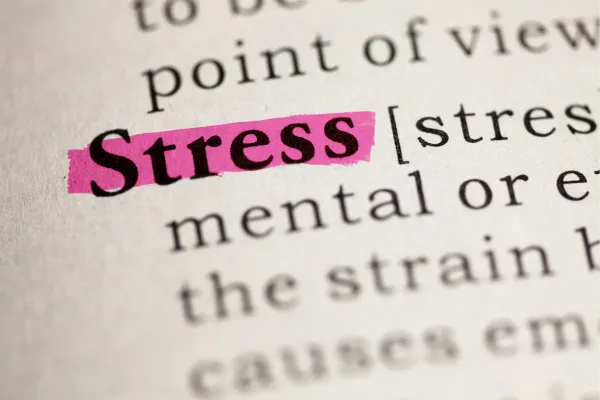The Block Talk Blog

Navigating the Challenges of Being a Probation Officer: Building Community Connections and Managing Stress
“Change is the law of life. And if you only look to the past or present, you are sure to miss the future.” - John F. Kennedy
Introduction:
The role of a probation officer is undoubtedly one of the most demanding yet rewarding careers in the criminal justice system. It involves working with individuals who have committed offenses, helping them reintegrate into society, and ensuring they comply with court-ordered conditions. While the work is impactful, it comes with a unique set of challenges. In this blog, we'll delve into some of the challenges faced by probation officers and explore strategies to mitigate stress while fostering deeper community connections.
Challenges of Being a Probation Officer
1. Heavy Caseloads and Administrative Tasks: Probation officers often carry a heavy caseload, making it challenging to provide individualized attention to each probationer. Administrative tasks, such as paperwork and court reports, can be time-consuming and add to the workload.
2. Balancing Enforcement with Rehabilitation: Striking the right balance between enforcing the law and promoting rehabilitation can be a delicate task. Probation officers must ensure probationers meet their obligations while also facilitating their reintegration into society.
3. Dealing with Resistance and Noncompliance: Some probationers may resist supervision and fail to comply with court-ordered conditions. Dealing with noncompliance can be frustrating and emotionally taxing.
4. Emotional Toll: The nature of the job exposes probation officers to the stories and struggles of individuals involved in the justice system. Witnessing these challenges can take an emotional toll on officers over time.
5. Safety Concerns: Probation officers often work in unpredictable environments, including visits to probationers' homes. This can expose them to safety risks.
Mitigating Stress as a Probation Officer
1. Self-Care: Prioritize self-care to manage stress. Regular exercise, meditation, and engaging in hobbies can help you recharge and maintain a healthy work-life balance.
2. Peer Support: Connect with fellow probation officers to share experiences, seek advice, and provide emotional support. Peer support can be invaluable in navigating the challenges of the job.
3. Training and Professional Development: Invest in continuous training and professional development to stay up-to-date with best practices in probation supervision and stress management techniques.
4. Boundaries and Time Management: Establish clear boundaries between work and personal life. Effective time management can help you handle administrative tasks more efficiently, reducing stress.
Connecting with the Community on a Deeper Level
1. Community Engagement:* Building connections with community organizations, local law enforcement, and social services agencies can enhance your ability to support probationers effectively. Collaborate with these stakeholders to provide resources and support.
2. Restorative Justice Programs:* Explore restorative justice programs that aim to involve the community in the rehabilitation process. These programs can help probationers make amends to those they've harmed and create a sense of community accountability.
3. Education and Outreach:* Engage in community education and outreach efforts to increase awareness about the role of probation officers and the challenges probationers face. This can foster empathy and support from the community.
4. Mentorship Programs:* Consider initiating or participating in mentorship programs that connect probationers with positive role models from the community. These relationships can be instrumental in helping individuals reintegrate successfully.
Conclusion
Working as a probation officer is a noble and vital profession that comes with its share of challenges. By implementing strategies to manage stress and forging deeper connections with the community, probation officers can better fulfill their roles as agents of positive change. Remember that, despite the difficulties, your work plays a crucial role in helping individuals reintegrate into society and reduce recidivism, making communities safer and more resilient.
Like this article?
Join the conversation at The Corrections Community Network!
Find out more here

Dr. John Lawrie
Dr. John Lawrie is a 20 veteran of the CT Department of Corrections and an Associate Professor; Department of Criminal Justice and the Sociology Chair; MSCJ Program Director at Albertus Magnus College in New Haven, CT. Dr. Lawrie is also the founder of the Corrections Community Network, an online community for correctional professionals.

The Corrections Community Network is an online community created by correctional professionals for correctional professionals. We are dedicated to the health, wellness, personal and professional development of corrections, probation and parole staff everywhere.
Contact Us
john@thecorrectionsdr.com
- Monday - Friday, 8:00 am - 5:00 pm
The Corrections Community Network. All rights reserved.
© Copyright 2026.
